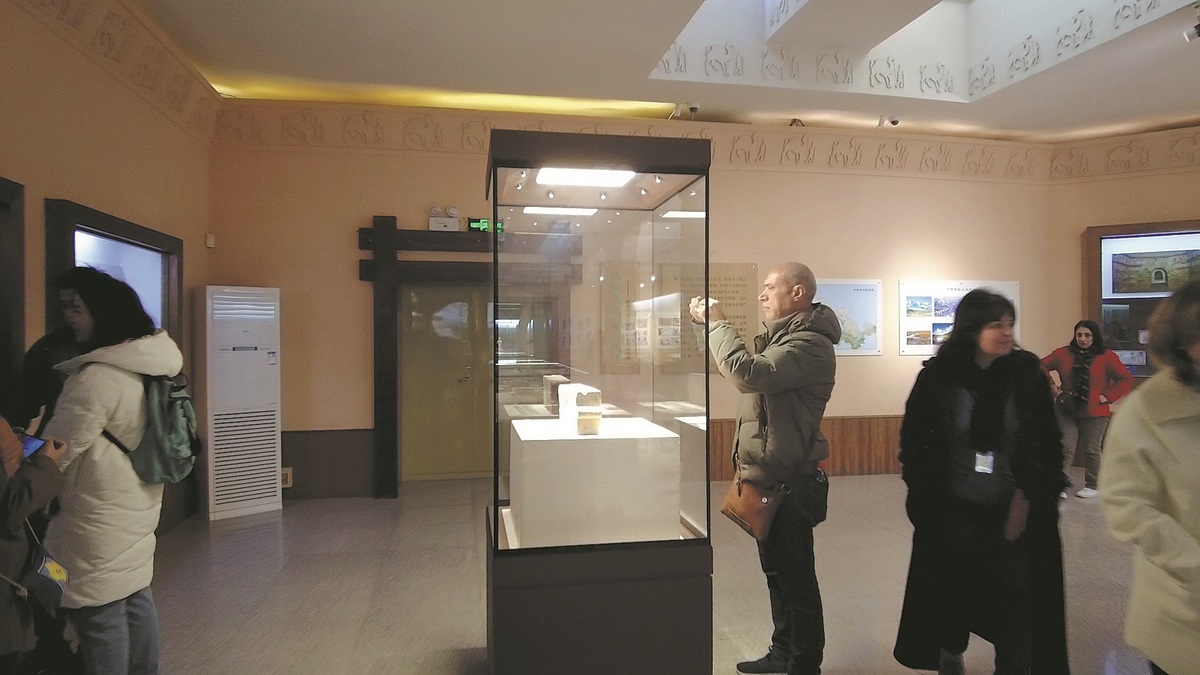Mogao Caves' preservation inspires Syrian experts
Visitors from war-torn country witness how cultural protection work can succeed. Yao Yuxin reports in Dunhuang, Gansu.


Hidar Yousef initially aspired to be a tour guide. However, he now finds himself acting as a guardian of Syria's cultural heritage, working at the Directorate-General of Antiquities and Museums in the capital Damascus.
The country's civil war dramatically changed the course of his life. After the conflict erupted in 2011, tourists vanished, the tourism industry collapsed, and cultural relics became targets for bombing, theft, illegal excavations and smuggling.
"It's kind of an ironic story," Yousef said. "I wanted to introduce (artifacts). Now I am rescuing (them)."
The conflict altered almost everything in the 31-year-old's life. Born into a Syrian middle-class family, Yousef once enjoyed the trappings of affluence, with his family having four apartments and three cars. However, after the war his entire family is now forced to live in a single dwelling.
His wedding plans have been repeatedly delayed as he cannot afford the $200 engagement ring. As an archaeologist with a doctorate, he scrapes by on a meager $15 a month, and like nearly all Syrians he juggles at least two jobs just to make ends meet.
Day-to-day survival is a challenge for most Syrians, with the preservation of the country's cultural heritage low on most people's list of priorities, he said.
Yousef shared his story during a study tour of the Mogao Caves in Dunhuang, Gansu province, in early November. He was part of a delegation of 24 Syrian cultural scholars and officials, seeking to learn from China's expertise in cultural heritage preservation.
"All the time we viewed European experience as the best," he said. "But one or two years ago, we started to look to the East," he said, adding that they chose China to find out what was going on in the area of cultural heritage preservation.
"We were actually surprised, China is way better," he said.


















